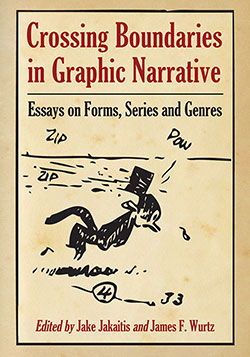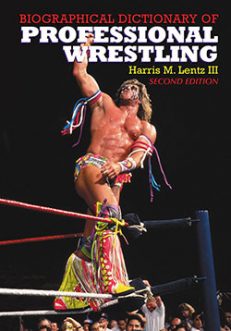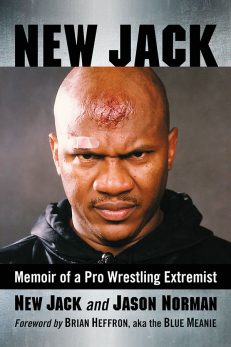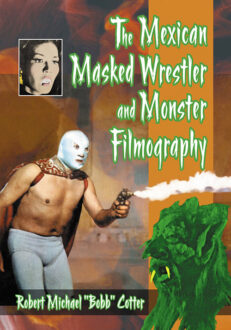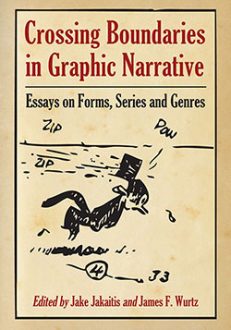Crossing Boundaries in Graphic Narrative
Essays on Forms, Series and Genres
$39.95
In stock
About the Book
Although the idea that graphic narratives represent an important literary form is still debated in academic circles, in recent years comics scholarship has emerged into wider contexts. This collection of new essays considers various literary approaches to graphic narrative and sequential art. The authors examine the politics of comic form and narrative, the ways in which graphic narrative and sequential art “cross over” into other forms and genres, and how these articulations challenge the ways we read and interpret texts.
By bringing literary theory to bear on graphic narrative and balancing readings of individual texts with larger ideas about comics scholarship as a whole, this work expands our understanding of the form itself and its engagement with political culture.
About the Author(s)
Bibliographic Details
Edited by Jake Jakaitis and James F. Wurtz
Format: softcover (7 x 10)
Pages: 229
Bibliographic Info: 27 illustrations, notes, bibliographies, index
Copyright Date: 2012
pISBN: 978-0-7864-6663-4
eISBN: 978-0-7864-8978-7
Imprint: McFarland
Table of Contents
Introduction: Reading Crossover
JAKE JAKAITIS and JAMES F. WURTZ 1
PART I: WAYS OF READING
1. Michael Chabon’s Amazing Adventures with Dark Horse Comics
JOHN JOSEPH HESS 25
2. The Comic Modernism of George Herriman
DANIEL STEIN 40
3. Fantastic Alterities and The Sandman
JULIA ROUND 71
4. Thirty-Two Floors of Disruption: Time and Space in Alan Moore’s “How Things Work Out”
RIKKE PLATZ CORTSEN 93
PART II: READING ETHNICITY
5. Picturing Books: Southern Print Culture in Howard Cruse’s Stuck Rubber Baby
DAVID BORDELON 107
6. Iconoclastic Readings and Self-Reflexive Rebellions in Marjane Satrapi’s Persepolis and Persepolis 2
PAMELA J. RADER 123
7. Drawing the Trauma of Race: Choices and Crises of Representation in Art Spiegelman’s Maus
LUMINITA DRAGULESCU 138
8. Mezclando (Mixing) the “Facts” and the Power of the Image in Latino USA
ELLEN M. GIL-GÓMEZ 152
PART III: READING THE HERO
9. “3X2(9YZ)4A”: Stasis and Speed in Contemporary Superhero Comics
MARTYN PEDLER 177
10. My Wonder Woman: The “New Wonder Woman,” Gloria Steinem, and the Appropriation of Comic Book Iconography
ANDREW J. FRIEDENTHAL 188
11. Paneling Rage: The Loss of Deliberate Sequence
MICHAEL P. MILLINGTON 207
About the Contributors 219
Index 221
Book Reviews & Awards
“excellent, sometimes brilliant essays on comic books and comic strips. Recommended”—Choice.

